- Home
- Robert B. Parker
Sudden Mischief s-25 Page 7
Sudden Mischief s-25 Read online
Page 7
"You call this thing a case?" Hawk said.
"Verbal shorthand," I said. "What I want you to do is go and sit outside Jeanette Ronan's house and await developments."
"Do I get a big fee?" Hawk said.
"No," I said.
"Do I get donut expenses?"
"Absolutely," I said. "Ask for a receipt."
"Ronans live on Marblehead Neck?"
"Uh huh."
"Might get noticed," Hawk said. "Not that many brothers hanging around out there."
"Dress like a butler," I said.
"Yassah," Hawk said and hung up.
In fact, I knew he'd manage, in ways only he understood, to blend into the scenery in Marblehead just as he did anywhere else. Hawk could infiltrate the Klan if he put his mind to it.
A woman showed up at about two in the afternoon driving a Mercedes sports coupe. She beeped open the garage door to the right of her condo and drove the car into the garage. The garage door slid back down. I waited a moment and got out and walked up her walk and rang the door bell. She still had her coat on when she opened the door. She left the chain bolt in place.
"Carla Quagliozzi, I presume."
"What do you want?" she said.
"I was interested in making a big donation to Civil Streets."
She stared at me without speaking. She was a fleshy young woman with a lot of red hair and a big figure, even with her coat on.
"May I come in?" I said.
"No."
"Are you the president of Civil Streets?"
"Who wants to know?" she said.
"My name is Spenser," I said. "I'm… " She closed the door. "A private detective," I said to the door.
I hate incompletion.
I leaned against her doorjamb for a time and thought about this. She had shut the door on me when she heard my name; I had never said what I was up to. So my name meant something to her. Which meant someone had been talking to her about me, and, given the door slam, warning her not to talk with me. This might be a clue, though I hadn't seen one for so long. I wasn't sure. But if someone had been warning her not to talk to me and I showed up at her door, what would she do next? I walked back to my car and leaned on it. I thought about calling her number to see if the line was busy, but she probably had the accursed call waiting and I wouldn't learn anything.
In about fifteen minutes a dark green Range Rover came around the corner off Mystic Ave and cruised down Shore Drive and parked in Carla's driveway. A guy got out of the driver's side and closed the door carefully behind him and walked to Carla's front door. As far as I could tell, he didn't see me, though he must have because I was standing about ten feet from the driveway. He was taller than I was, with a thin strong look. He was clean shaven. His dark hair was slicked back smooth. He wore a white turtleneck with a black blazer. His sand-colored slacks had a sharp crease in them and his loafers gleamed with polish. He rang the bell, Carla opened the door and let him in. I leaned some more on my car. The caller was in there for maybe twenty minutes and then he came out Carla's front door, closed it carefully behind him, and walked briskly down her walk to where I was leaning. He was a guy used to handling things.
"You're Spenser," he said.
"Yes."
"My name's Richard Gavin," he said. "What was it you wished to talk with Carla about."
"Civil Streets."
"Why."
"Because the AG's office has her listed as the president."
"Don't fuck around with me," Gavin said. "I meant, what did you wish to discuss?"
"Tell me why that's your business," I said.
"Because I've made it my business."
"Good answer," I said.
"Well?"
"I'm looking into a matter tangential to the Galapalooza fund-raiser that Civil Streets participated in last year."
"Yeah?"
"Tangential?" I said.
"What about tangential," Gavin said.
"Aren't you even a little impressed with my use of the word?"
Gavin sighed.
"Okay," he said. "You think you're a funny guy. All your friends think you're a funny guy. Well, I don't think you're a funny guy, you got it? I don't think you're funny even a little bit."
"I'll win you over," I said.
He shook his head.
"What do you want to know about Galapalooza?" he said.
"Civil Streets get any money from it?"
"I'm sorry, that's privileged information."
"The hell it is," I said. "You're a public charity."
"Well, let me be more specific," Gavin said. "That information is privileged to you."
"Just because you don't think I'm funny?"
"Sure," Gavin said. "That'll do."
"This is dumb," I said. "You know and I know that I can find this out. All you do by refusing to tell me is get me wondering why you're refusing."
"It would be in your best interest to leave this alone," Gavin said.
"Because?"
"The `because' could go two ways," Gavin said. " `Because you would get a nice bonus if you moved on,' is one way."
"And what would the other way be?"
"Because you could get killed if you don't."
"Ahh," I said. "The old buzz word."
"You're a small-time guy," Gavin said. "And you have put your foot in a big-time puddle. We don't mind. We like to do things easy, if we can. You can walk away from this with a nice piece of change. No problem. Just don't be foolish. Don't get yourself killed because you think you have to be macho man."
"How much?" I said.
"Five large," Gavin said.
"That's a nice bribe," I said. "The trouble is that I am macho man."
"You think you are," Gavin said. "We chew up macho men like M&M's."
"Peanut or plain?"
"Better you should take the money?"
"The thing is, Richard, I hope you don't mind if I call you Richard. The thing is that my entire corporate inventory is a few brains and a lot of balls. I sell that inventory and I'm out of business… for five grand."
"And your life," Gavin said.
"Well, sure, that sweetens the pot a little," I said. "But a lot of people have promised to take my life."
Gavin smiled, and put one arm across my shoulders.
"Spenser, I like your style. I really do. But we're a little different maybe than other people you've talked to.
"You going to do it?" I said.
He laughed and took his arm away.
"Well," I said, "it better be somebody better than the two clowns you sent the first time."
Gavin looked puzzled.
"Somebody talked to you already?"
"Big tall fat guy," I said. "And a short thick guy, no neck."
"Not ours," he said.
Gavin had no reason to deny it. And his look of puzzlement had seemed real.
I said, "You haven't seen Brad Sterling around, have you?"
"Who?"
"Just grasping at straws," I said.
"Sure," Gavin said. "So where do we stand?"
"We stand as follows," I said. "A, I'm going to find out what's going on with Civil Streets. And B, don't put your arm on my shoulder again."
Gavin stood and looked at me for a moment. I could see that he wasn't used to rejection. Then he simply turned and left. He walked straight back to his car, got in, started up, and drove away without looking at me again.
Sorehead.
chapter eighteen
SUSAN AND I were running by the head of the Charles River on the Cambridge side, near the Cambridge Boat Club. It wasn't really the head, it was just where the river, having encroached north into Cambridge, turned back west toward its birth in Dedham. But Cambridge is Cambridge and they thought it was the head.
"Don't get giddy here," I said, "but have you heard from Brad Sterling?"
"No."
"I went to see him and he wasn't there and his office was closed. Do you know his home address?"
> "No."
"You have any thoughts on his absence?"
"Perhaps he's gone away for a few days."
"Perhaps," I said.
The ice was out of the river and the boat crews were on the cold water pulling hard while their coaches followed in small motor boats, yelling instructions through bull horns. Susan and I ran with the river on our left, the sparse Saturday-morning traffic moving on Fresh Pond Parkway to our right. Across the parkway some kids were out early throwing a baseball on the prep school field. It was still cold enough so that a ball off the handle would make your hands ring up to your shoulder.
Susan ran beside me, on my left, so that my sword arm would be free. She wore a lavender headband and gray-lensed Oakley sunglasses and a gray sweat jacket that said Ventana Canyon on the left breast, and came low enough to cover most of her fanny, which, she contended, was ladylike when wearing shiny black tights. Her running shoes were white with lavender highlights, which explained the headband. She was in shape and she ran easily. Me too.
"You work out before you met me?" I said.
"No, I don't think I did," Susan said.
"You play any sports as a kid?"
Susan laughed.
"Cute little Jewish girls, when I was a kid, did not play sports."
"What did you do," I said.
"We looked beautiful and our daddies took us to libraries and theater matinees and movies and museums and shopping and lunch."
"No mommies?"
"Mommy thought spending money was a bad thing. She always disapproved of the things my father bought me.
"Did you have money?"
"We had enough. The drug store did well, I think. I always thought we were… upper class, I guess."
"I bet you were," I said.
We chugged up over the Eliot Bridge and onto the Boston side of the river. Actually, I chugged. Susan glided.
"It's funny to think of you," I said, "little Suzy Hirsch sitting at dinner every night with these two people that I don't know."
"Thing is," she said, "I didn't know them either."
"Not even your father?"
"Especially my father. He was simply a playmate. He was never really a father. He never reprimanded or instructed, or even explained. If I was doing something he didn't like, he'd speak to my mother about it. She'd do the parenting."
"Which she probably liked," I said.
"Yes, I suppose she did. It gave her status, so to speak, in the family. And it gave her a chance to berate me in a socially acceptable way."
"Probably a lot of parental discipline is disguised anger," I said, just to be saying something. I had no idea what I would accomplish by getting her to tell me about her childhood, but I liked hearing it. And it couldn't hurt.
"Yes, she was quite careful about that. She would denigrate me, whenever she could. If I said something at dinner she would smother a snicker. But every time she did anything direct, she would give it the maternal spin. She had to protect me from my failures of character: `Oh Susan, you know how you are."'
"And your father never intervened."
"No. Parenting me was my mother's job. Besides, we had to protect her."
"You and your father."
"Yes."
"From what?"
"From breaking down. She was very nervous. That was the phrase, nervous. I suppose now we would say she was phobic."
"Oh, Ma," I said. "You know how you are."
Susan smiled.
"Perhaps if you decide to give up professional thuggery," she said, "you could hang out your shingle."
"Then could I say things like, she was projecting her own inadequacies onto you?"
"Yes, only I think you need to deepen your voice a little more and say it more slowly."
There was sweat on Susan's face and sweat had soaked through the back of her gray jacket. But her voice was still even and conversational.
"You and your father ever talk about that?"
"Protecting my mother? No. It was an unspoken agreement. We'd pretend she wasn't phobic. We'd agree that she was `nervous' and that we didn't want to `upset her.' But the agreement was silent. We never spoke of it. We never, in my memory, spoke of anything."
"Nothing?"
"Nothing of substance. He'd ask me how I liked school, or tell me what a pretty dress I had on. That sort of thing. But an actual conversation-I can't remember one."
"So the only parent you had was your mother and she was jealous of you. Did she love you too?"
"I think so. I know that I was ashamed of her. She was older than other kids' mothers, and she was really square. And I know I hated her for being so"-Susan smiled sadly-"nervous. But however bitchy she was, I knew she loved me. And she was always there. I trusted her, as much as I despised her. She was the one who took care of me."
"And she had her problems," I said.
"Yes," Susan said, "she had many and they were probably deep seated and my father was probably one of them."
"He fool around?" I said.
"I have no idea," Susan said. "I spent a lot of time with him, but I can't express to you how much I didn't know my father."
From the Harvard Boat House to the Larz Anderson Bridge is uphill. You never notice it driving along Soldier's Field Road. It's not very dramatic, but if it marks the last stretch of a four-mile run, it becomes more apparent.
"Well, dysfunctional or not," I said, "they produced a hell of a daughter."
"A bit dysfunctional herself."
"You think?"
"Not easy to live with," Susan said.
"Impossible to live with," I said. "But what we do works out pretty good."
"Just pretty good?"
"Masculine understatement," I said.
"Oh that," she said.
We went up the little hill and turned left across the Anderson Bridge, where I had almost died last year.
"I am being a bitch," Susan said, "about Brad Sterling."
"Yes."
"I'm sorry."
"I know."
"I don't know if I can promise not to be again."
"I know."
"Nothing breaks you, does it," Susan said. "Nothing makes you swerve."
"For crissake, Suze, I love you," I said. "I plan to continue."
"If I weren't so ladylike," she said, "I might cry."
"Isn't it sort of unladylike, anyway, to sweat like you do?" I said.
"Hey," Susan said. "Unlady-like this!"
"Of course," I said. "How could I have been so wrong."
chapter nineteen
HAWK CAME INTO my office wearing a blue blazer and white trousers.
"Been yachting?" I said.
"Ah is in disguise," Hawk said. `"The Marblehead look. Blend right in."
"Boy, you certainly fooled me," I said. "How'd it work?"
Hawk shrugged.
"Been outside the Ronan place maybe an hour when two hard cases come along."
"Cops?"
"Naw. Tough guys. A tall fat one, and a short one with muscles, no neck that I could see."
"Well, well," I said.
"Sound familiar?"
I nodded. "What did they say?"
"They want to know what I'm doing there. And I say, `Who wants to know?' And they say, `We do,' and it go sort of like that for a while. And they say if I know what's good for me that I'll haul my black ass out of there."
"That wasn't very sensitive," I said.
"I told them that."
"And?"
"Apparently they hadn't intended it to be sensitive. So, I figured since they looked a lot like two guys braced you a while ago that maybe I might have run into a whatchamacallit…"
"A clue," I said.
"That's it," Hawk said, "a clue, and you being a great detective might know what to do with it. So I let them chase me away, and here I am."
"It's the same two guys," I said.
"I figure," Hawk said. "So whoever owns them not only don't want you nosing around, he don't w
ant me."
"He or she," I said.
"That's right," Hawk said. "I was being insensitive."
"I got threatened again yesterday myself," I said.
"Astonishing," Hawk said. "And we so charming too."
"The thing is it was on a matter that Ronan shouldn't have anything to do with."
"You assuming the two stiffs I talked to work for Ronan."
"Yes," I said.
"Sonovagun," he said. "I thought so too, and I not even a great detective. Who threaten you yesterday?"
"Tall guy, sort of thin, strong looking, sharp dresser, drives a dark green Range Rover…"
"You got threatened by a guy who drives a Range Rover?"
"Embarrassing, isn't it? Said his name was Richard Gavin."
Hawk shrugged.
"So many assholes," he said. "So little time."
"So I try to find out a little about the alleged sexual harassment and get threatened," I said. "And I ask you to keep an eye on Ronan and you get threatened. And while I'm trying to look into the harassment charges, I find out that Sterling's big charity thing was a bust and nobody got any money. Except that I couldn't get in touch with anyone at a beneficiary group called Civil Streets. So I try to find out a little about Civil Streets because I just stumbled across it while I'm looking into the Sterling thing, and I'm a neat guy, and I like to be thorough, and because I don't know what else to look into, and I get threatened."
Hawk was sitting in one of my office chairs with his feet up on my desk. He was wearing blue suede loafers that matched the blazer.
"I a great detective I might think there was some connection."
"If you were a great detective you might explain to me why Brad Sterling isn't around."
"Gone?"
"I went by there and his office is closed. Nobody knew where he was."
"Secretary."
"Nope. Door was shut and locked."
"It appears," Hawk said, "that the plot be thickening."
"Christ," I said, "maybe you are a great detective."
"Want me to drift by his house, see if he there?"
"Haven't got his address," I said.
"You ask Susan?"
"Yeah."
Hawk nodded.
"Here's a trick," Hawk said.
He picked up the white pages from the top of a file cabinet and riffled through it, and paused and ran his finger down a page and stopped. He shook his head.

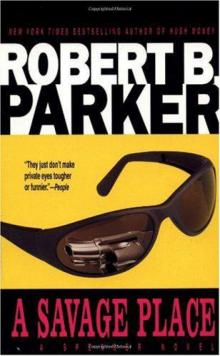 A Savage Place s-8
A Savage Place s-8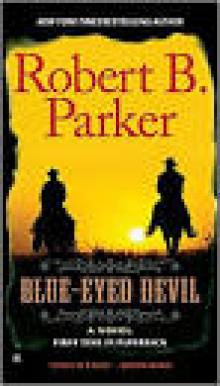 Appaloosa / Resolution / Brimstone / Blue-Eyed Devil
Appaloosa / Resolution / Brimstone / Blue-Eyed Devil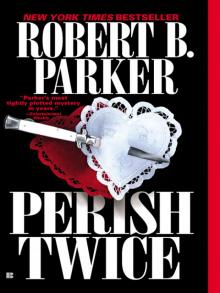 Perish Twice
Perish Twice Spare Change
Spare Change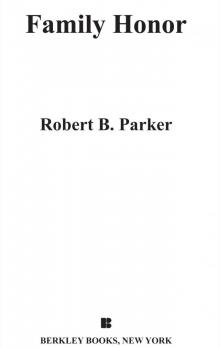 Family Honor
Family Honor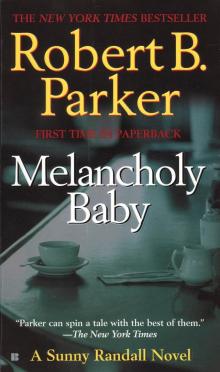 Melancholy Baby
Melancholy Baby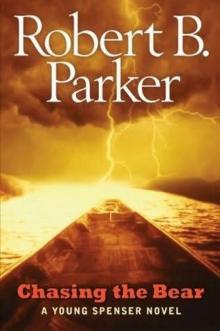 Chasing the Bear
Chasing the Bear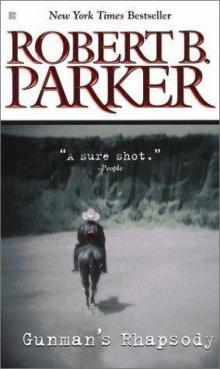 Gunman's Rhapsody
Gunman's Rhapsody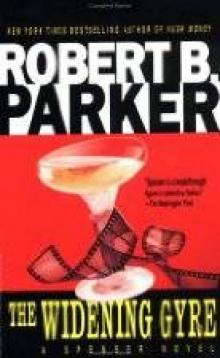 The Widening Gyre
The Widening Gyre Thin Air
Thin Air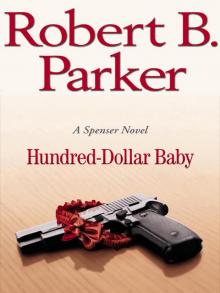 Hundred-Dollar Baby
Hundred-Dollar Baby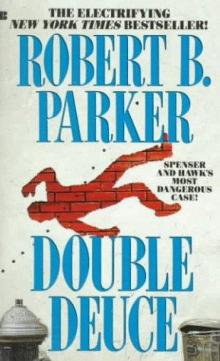 Double Deuce s-19
Double Deuce s-19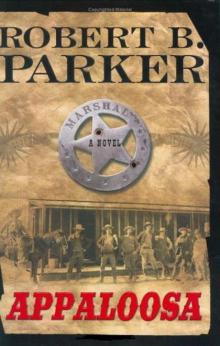 Appaloosa vcaeh-1
Appaloosa vcaeh-1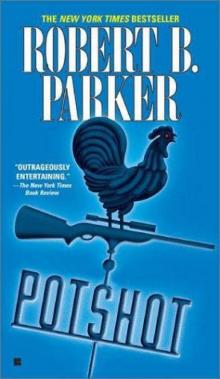 Potshot
Potshot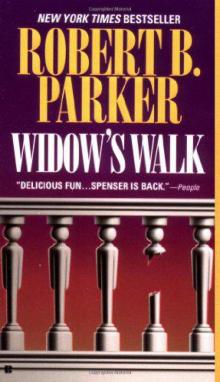 Widow’s Walk s-29
Widow’s Walk s-29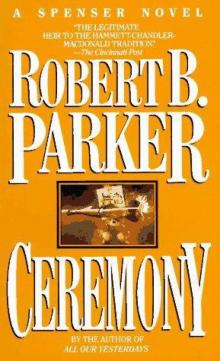 Ceremony s-9
Ceremony s-9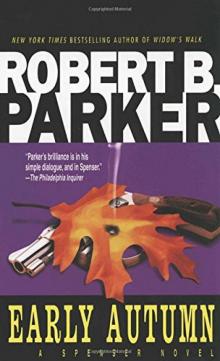 Early Autumn
Early Autumn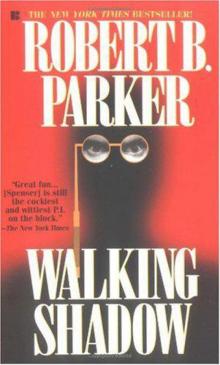 Walking Shadow s-21
Walking Shadow s-21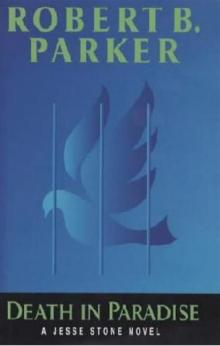 Death In Paradise js-3
Death In Paradise js-3 Shrink Rap
Shrink Rap Blue-Eyed Devil
Blue-Eyed Devil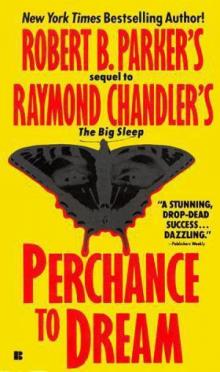 Perchance to Dream
Perchance to Dream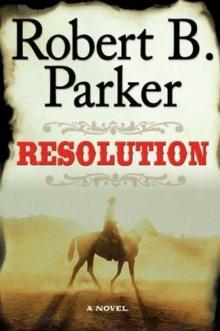 Resolution vcaeh-2
Resolution vcaeh-2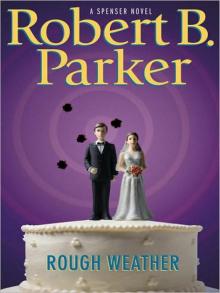 Rough Weather
Rough Weather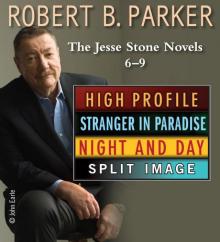 The Jesse Stone Novels 6-9
The Jesse Stone Novels 6-9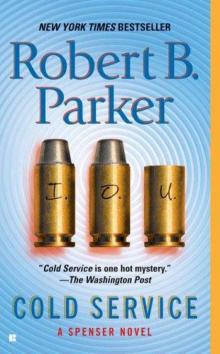 Cold Service s-32
Cold Service s-32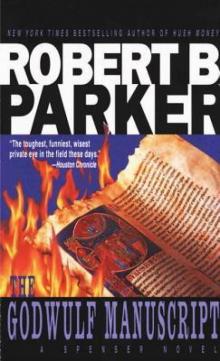 The Godwulf Manuscript
The Godwulf Manuscript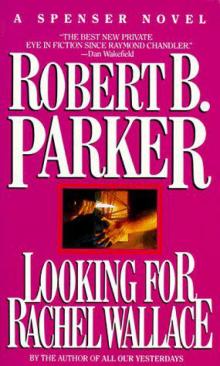 Looking for Rachel Wallace s-6
Looking for Rachel Wallace s-6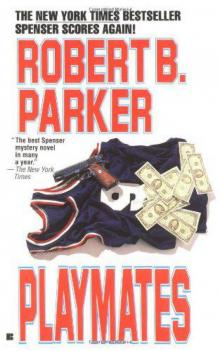 Playmates s-16
Playmates s-16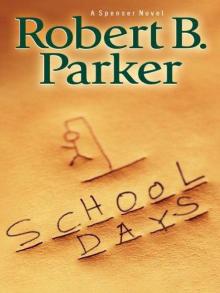 School Days s-33
School Days s-33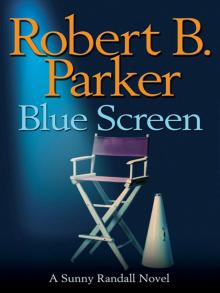 Blue Screen
Blue Screen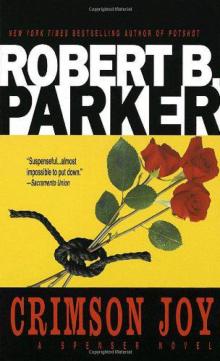 Crimson Joy
Crimson Joy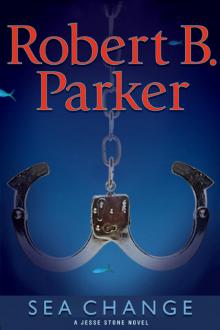 Sea Change js-5
Sea Change js-5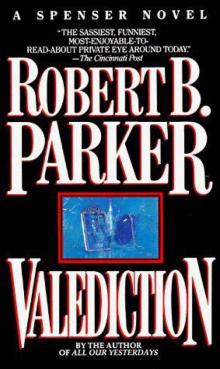 Valediction s-11
Valediction s-11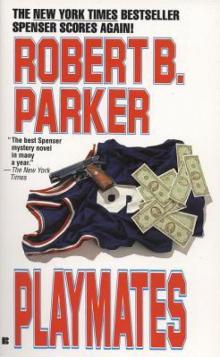 Playmates
Playmates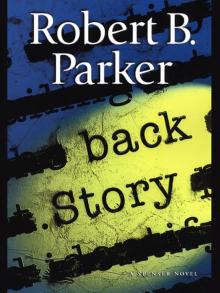 Back Story
Back Story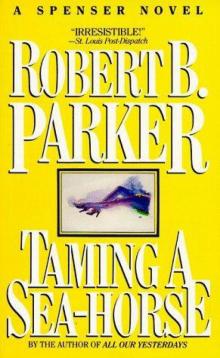 Taming a Sea Horse
Taming a Sea Horse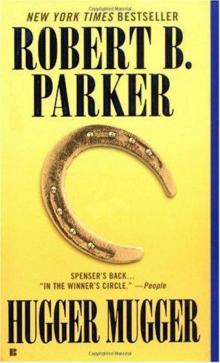 Hugger Mugger
Hugger Mugger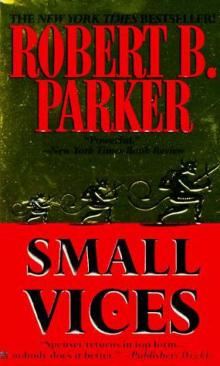 Small Vices s-24
Small Vices s-24 Silent Night: A Spenser Holiday Novel
Silent Night: A Spenser Holiday Novel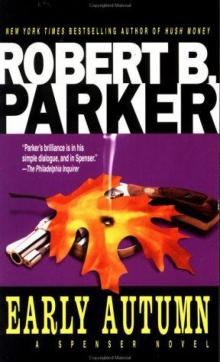 Early Autumn s-7
Early Autumn s-7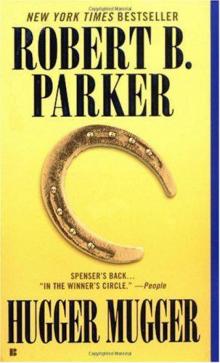 Hugger Mugger s-27
Hugger Mugger s-27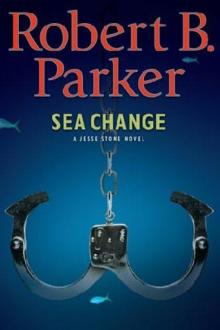 (5/10) Sea Change
(5/10) Sea Change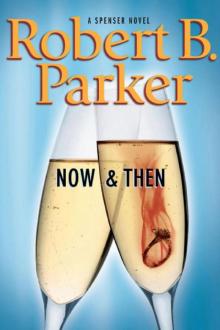 Now and Then
Now and Then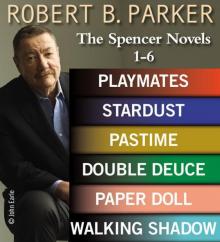 Robert B. Parker: The Spencer Novels 1?6
Robert B. Parker: The Spencer Novels 1?6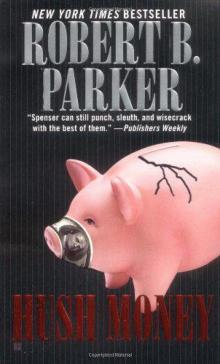 Hush Money s-26
Hush Money s-26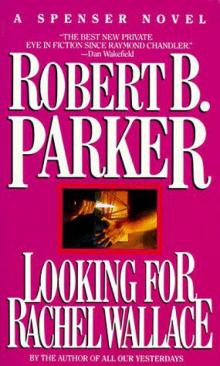 Looking for Rachel Wallace
Looking for Rachel Wallace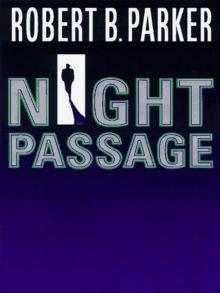 Night Passage
Night Passage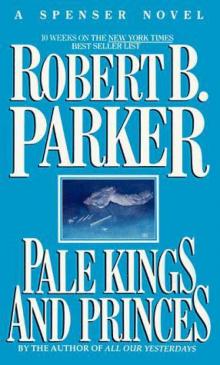 Pale Kings and Princes
Pale Kings and Princes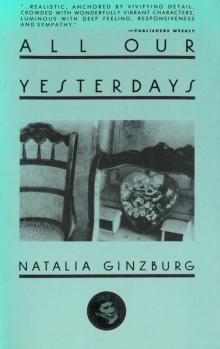 All Our Yesterdays
All Our Yesterdays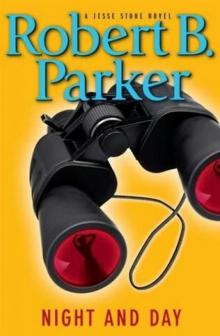 Night and Day js-8
Night and Day js-8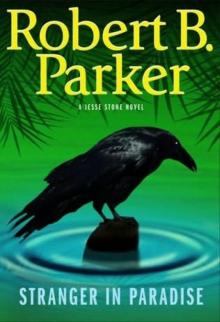 Stranger in Paradise js-7
Stranger in Paradise js-7 Double Play
Double Play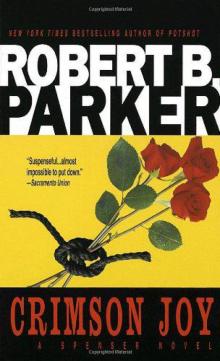 Crimson Joy s-15
Crimson Joy s-15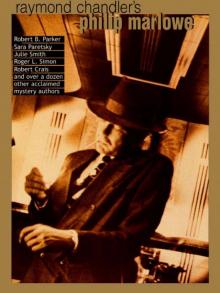 Raymond Chandler's Philip Marlowe
Raymond Chandler's Philip Marlowe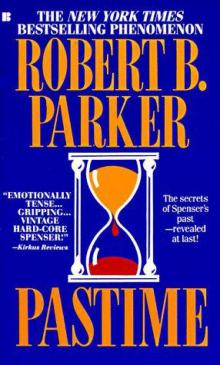 Pastime
Pastime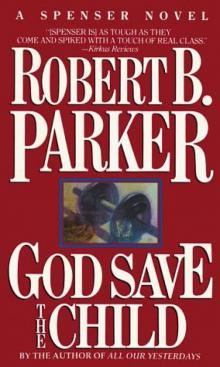 God Save the Child s-2
God Save the Child s-2 Bad Business
Bad Business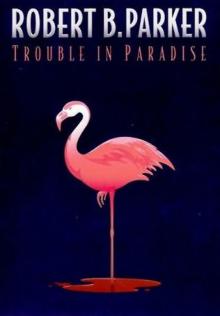 Trouble in Paradise js-2
Trouble in Paradise js-2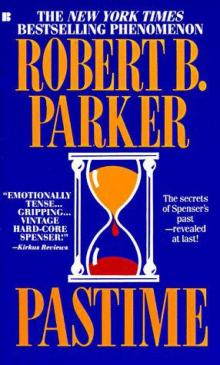 Pastime s-18
Pastime s-18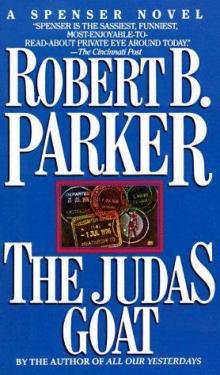 The Judas Goat s-5
The Judas Goat s-5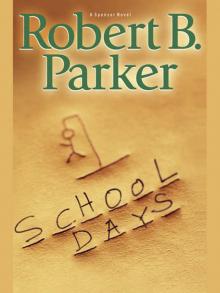 School Days
School Days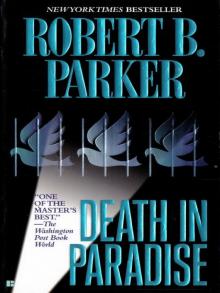 Death In Paradise
Death In Paradise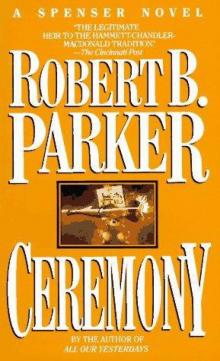 Ceremony
Ceremony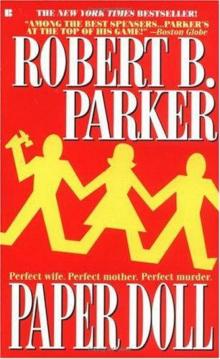 Paper Doll s-20
Paper Doll s-20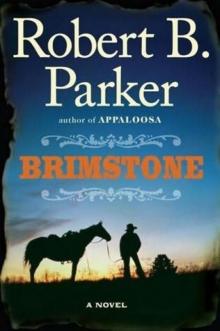 Brimstone vcaeh-3
Brimstone vcaeh-3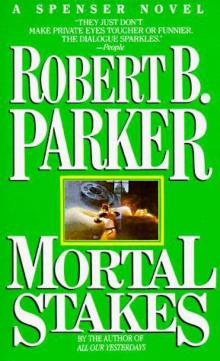 Mortal Stakes s-3
Mortal Stakes s-3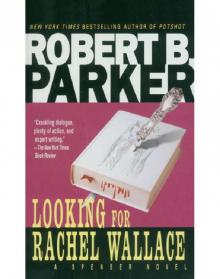 Spencer 06 - Looking for Rachel Wallace
Spencer 06 - Looking for Rachel Wallace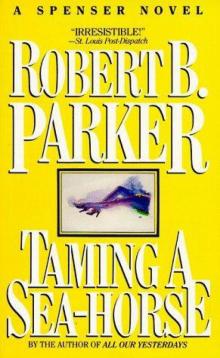 Taming a Sea Horse s-13
Taming a Sea Horse s-13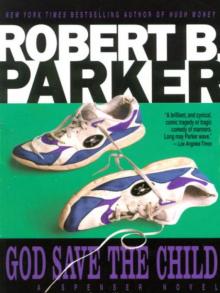 God Save the Child
God Save the Child Chance
Chance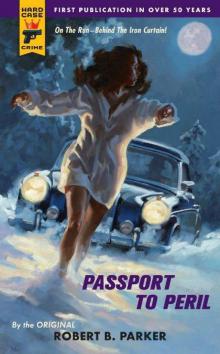 Passport To Peril hcc-57
Passport To Peril hcc-57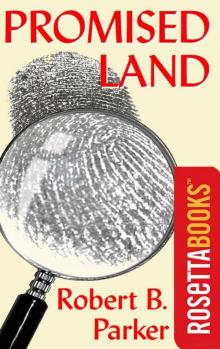 Promised Land
Promised Land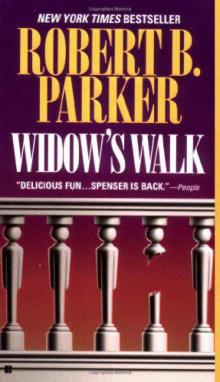 Widow’s Walk
Widow’s Walk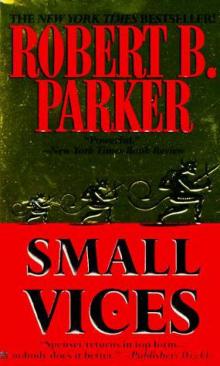 Small Vices
Small Vices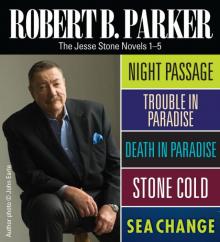 Robert B Parker: The Jesse Stone Novels 1-5
Robert B Parker: The Jesse Stone Novels 1-5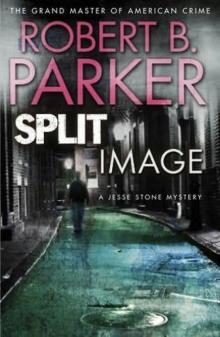 Split Image js-9
Split Image js-9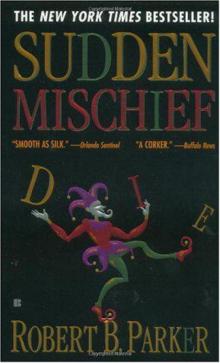 Sudden Mischief s-25
Sudden Mischief s-25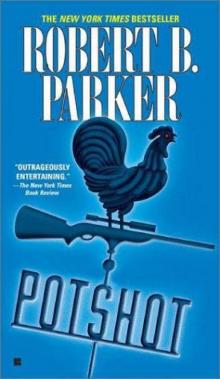 Potshot s-28
Potshot s-28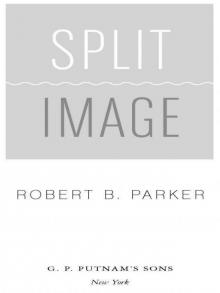 Split Image
Split Image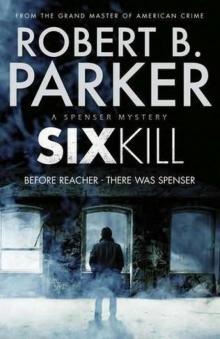 Sixkill s-40
Sixkill s-40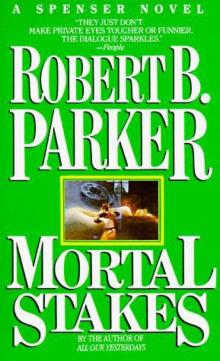 Mortal Stakes
Mortal Stakes Stardust
Stardust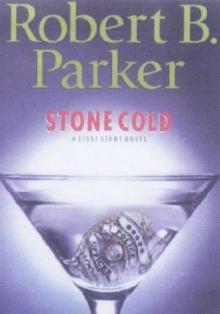 Stone Cold js-4
Stone Cold js-4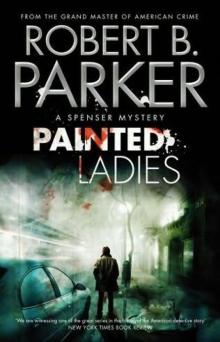 Painted Ladies s-39
Painted Ladies s-39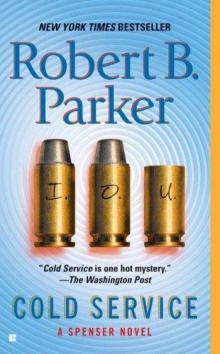 Cold Service
Cold Service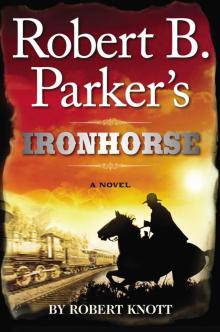 Ironhorse
Ironhorse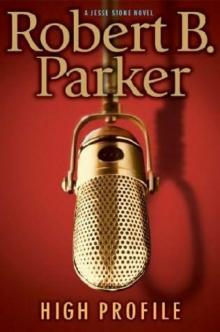 High Profile js-6
High Profile js-6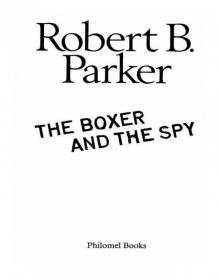 The Boxer and the Spy
The Boxer and the Spy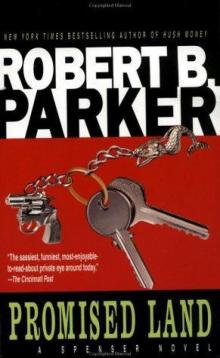 Promised Land s-4
Promised Land s-4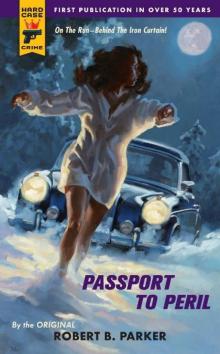 Passport to Peril (Hard Case Crime (Mass Market Paperback))
Passport to Peril (Hard Case Crime (Mass Market Paperback))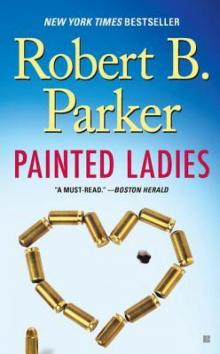 Painted Ladies
Painted Ladies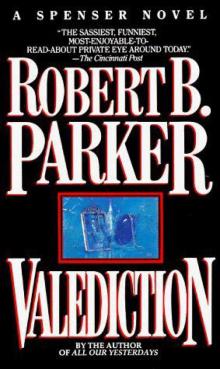 Valediction
Valediction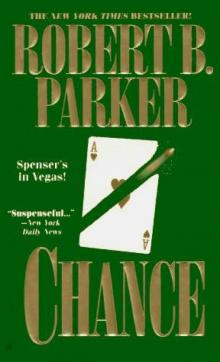 Chance s-23
Chance s-23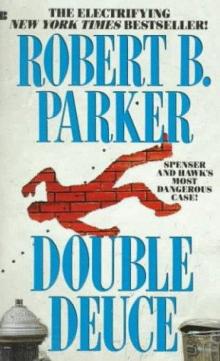 Double Deuce
Double Deuce Wilderness
Wilderness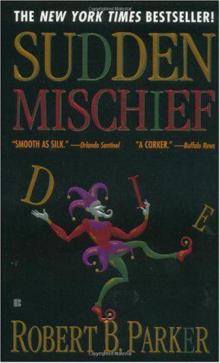 Sudden Mischief
Sudden Mischief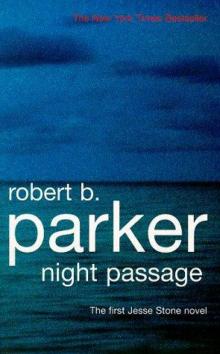 Night Passage js-1
Night Passage js-1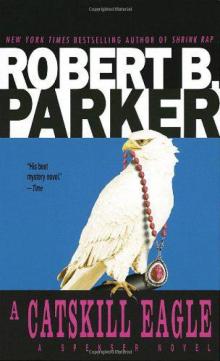 A Catskill Eagle
A Catskill Eagle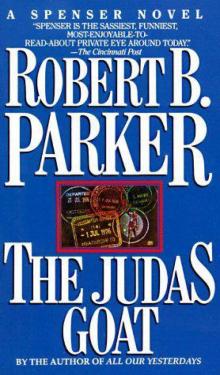 The Judas Goat
The Judas Goat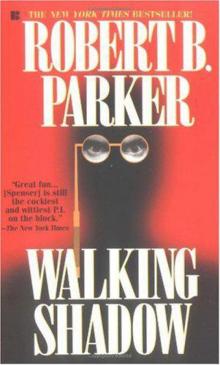 Walking Shadow
Walking Shadow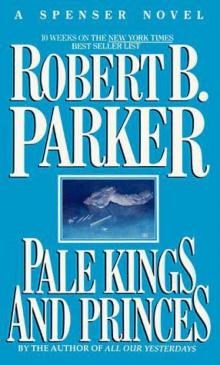 Pale Kings and Princes s-14
Pale Kings and Princes s-14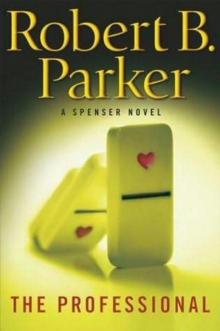 The Professional
The Professional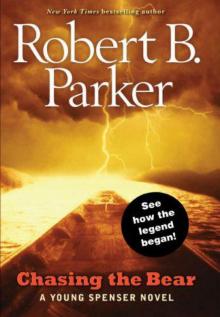 Chasing the Bear s-37
Chasing the Bear s-37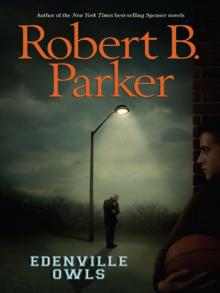 Edenville Owls
Edenville Owls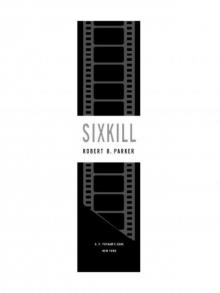 Sixkill
Sixkill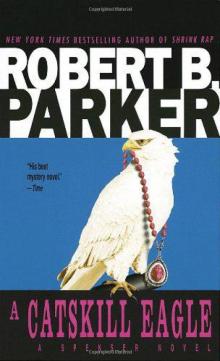 A Catskill Eagle s-12
A Catskill Eagle s-12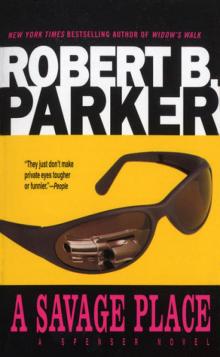 A Savage Place
A Savage Place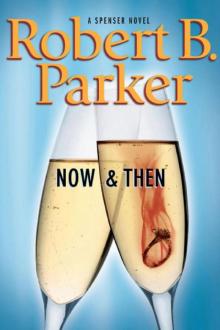 Now and Then s-35
Now and Then s-35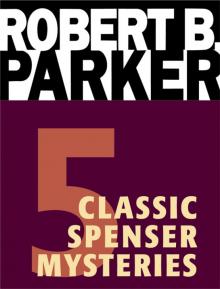 Five Classic Spenser Mysteries
Five Classic Spenser Mysteries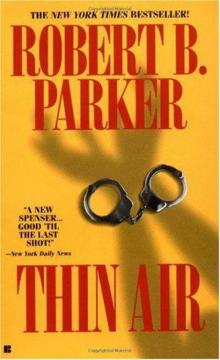 Thin Air s-22
Thin Air s-22